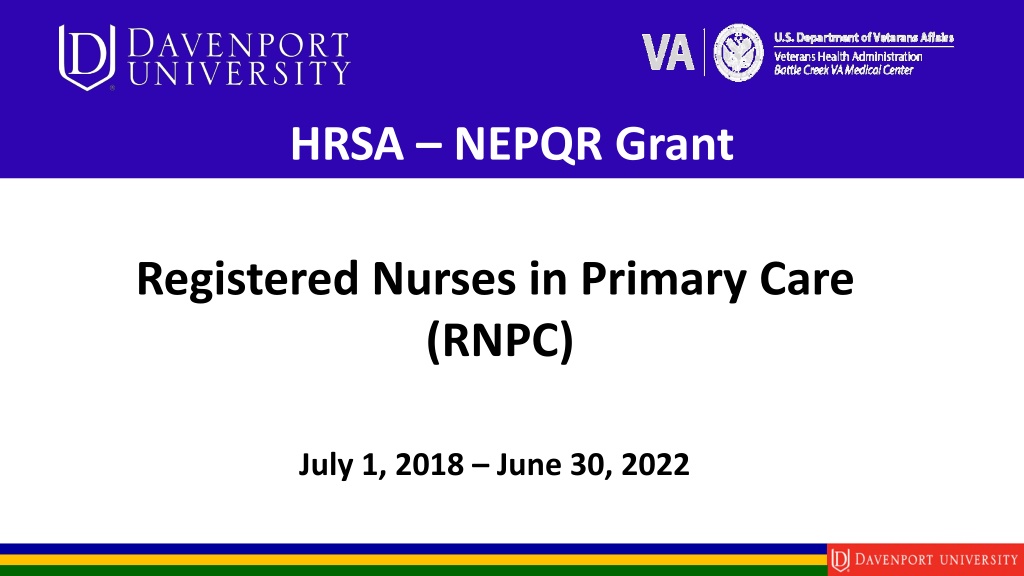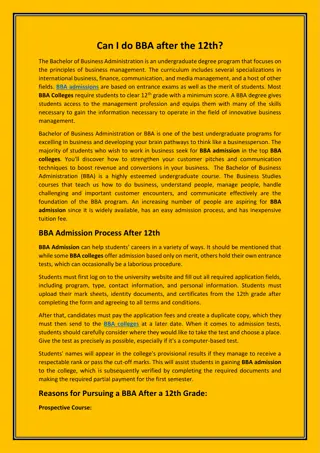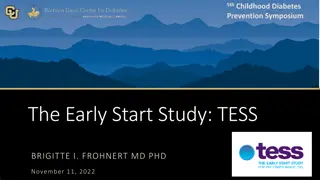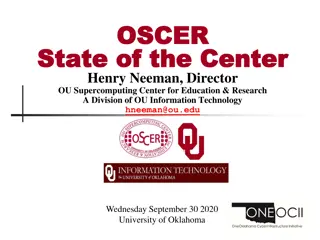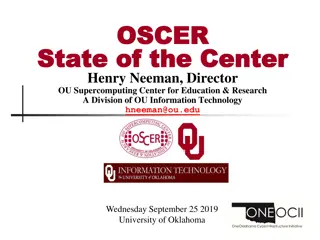HRSA NEPQR Grant for Registered Nurses in Primary Care Initiative
HRSA NEPQR Grant aims to enhance the workforce of primary care Registered Nurses by providing educational opportunities within BSN programs. The project is supported by HHS under grant UK1HP31714, focusing on improving healthcare services, patient outcomes, and population health in community-based ambulatory care settings. Military veterans seeking care in outpatient settings are a special focus, addressing their unique challenges in meeting healthcare needs.
Download Presentation

Please find below an Image/Link to download the presentation.
The content on the website is provided AS IS for your information and personal use only. It may not be sold, licensed, or shared on other websites without obtaining consent from the author. Download presentation by click this link. If you encounter any issues during the download, it is possible that the publisher has removed the file from their server.
E N D
Presentation Transcript
HRSA NEPQR Grant Registered Nurses in Primary Care (RNPC) July 1, 2018 June 30, 2022
Registered Nurses in Primary Care (RNPC) Karen M. Daley, PhD, RN Dean, College of Health Professions - Project Director Grant Team Dana Hill, MM, BAS Heather Hunt, MSN, RN Faculty Rachel Whitney, BA Research Assistant Mary Ziomkowski, DNP, MEd, RN Coordinator/Liaison Academic Advisor Advisory Team Amy Stahley, PhD, MSN, RN Associate Dean for Nursing Kelli Leask, MSN, APRN, FNP-C Michele Davis, BA Department Chair for Nursing Executive Director of Grant Development
Registered Nurses in Primary Care (RNPC) Acknowledgements This project is supported by the Health Resources and Services Administration (HRSA) of the U.S. Department of Health and Human Services (HHS) under grant number UK1HP31714 and titled "Nurse, Education, Practice, Quality, and Retention - Registered Nurses in Primary Care" for grant amount $2,410,071, with 0% financed with nongovernmental sources. This information or content and conclusions are those of the author and should not be construed as the official position or policy of, nor should any endorsements be inferred by HRSA, HHS or the U.S. Government.
Relevant Davenport History In 1866, less than one year after the end of the Civil War, Union Army veteran Conrad G. Swensberg founded the Grand Rapids Business College (now Davenport University) to assist returning veterans in obtaining employable skills in the rapidly growing business sector.6 DU is a Military Friendly School with specialized programs to assist active military and veterans succeed
Background for Initiative Affordable Care Act (ACA) of 2010 calls for a national strategy to improve delivery of health care services, patient care outcomes, and population health.1 ACA emphasizes a shift from the acute care model to a preventative care model through coordination, quality, and efficiency of health care.1 Focused efforts are needed to prepare RNs to deliver high quality care in community-based ambulatory care settings to meet the needs of complex and diverse patients.2,3 RNs must function as highly skilled care managers in ambulatory care settings Military veterans seeking care in outpatient settings often experience unique challenges in meeting health care needs.4,5
Purpose of the Grant To build the workforce of primary care RNs by enhancing educational opportunities within BSN programs through the application of evidence-based standards and best practices for community-based ambulatory primary care (CBAPC) settings. To contribute to the scientific knowledge base for evidence- based practice specific to the CBAPC setting, resulting in sustained professional development for RNs to positively impact patient care and transform healthcare.
Objectives of the Grant To enhance the nursing education of BSN-PL students and prepare them to care for patients in primary care settings, with the potential to transition directly into the primary care workforce upon graduation. To enhance the knowledge and skills of current RNs caring for military veterans in CBAPC settings.
Collaborative Partnership Davenport University School of Nursing Currently Lettinga Campus with potential to include Lansing and other campuses Wyoming VA Community-Based Outpatient Clinic (CBOC) VISN 10 Battle Creek VA Medical Center Potential to include additional CBOC sites
Primary Care/Veteran-Centric Model RNPC Model Developed by Davenport University in Collaboration with Wyoming VA CBOC
Education and Training Focus Education & Training for DU BSN-PL students Ambulatory (primary) care concepts Military cultural awareness Provision of healthcare to military veterans Professional Development for CBOC RNs Scope & standards of practice for professional ambulatory care nursing Preparation for AAACN certification if desired
Significant Components Clinical experiences within a VA community-based clinic Varied learning formats (classroom and online) Simulation training & Standard Patient experiences Mindfulness stress relief training Professional soft skills training 12-week 40-hour/week paid summer externship
Instructional Design Essay application process annually each April for 3 years Selection of up to 10 students/cohort entering the junior year Students participate during the junior and senior years Scholarship awards available for qualifying students Didactic & clinical experiences each semester Curriculum & clinical aligns with BSN-PL course objectives Paid externship during summer after junior year NUR325c students observe for one day at Wyoming CBOC
Preview Experience During NUR325c (mental health), all sophomore BSN-PL students participate in a 4-hour observation at the Wyoming VA CBOC. Students are assigned to a Patient Aligned Care Team RN to observe delivery of primary health care to military veterans. Prior to the observation, students are required to complete online learning modules related to primary care and the specific health care needs of military veterans. Pre- and post-assessments are given to measure student understanding of health care services provided at the VA.
Student Reflections It was a valuable experience. Not only to experience primary care nursing, but also to learn about the VA itself. I loved being paired with a nurse that was an Air Force veteran. She was extremely enthusiastic about her job. As a veteran myself, I have always heard that you don t want to use the VA. With that bias in mind, I was pleasantly surprised to find the care given to patients was outstanding. My experience at the VA really opened my eyes [to veteran care].
References 1 Health Protection and Affordable Care Act. (2010). Retrieved from http://housedocs.house.gov/ energycommerce/ppacacon.pdf 2 Smolowitz, J., Speakman, E., Wojnar, D., Whelan, E.M., Ulrich, S., Hayes, C., & Wood, L. (2014). Role of the registered nurse in primary care: Meeting health care needs in the 21st century. Nursing Outlook, 63, 130- 136. 3 Wojnar, D. & Whelan, E.M. (2016). Preparing nursing students for the enhanced roles in primary care: The current state of prelicensure and RN-to-BSN education. Nursing Outlook, 65, 222-232. 4 Linn, B., Butler, L., Bruce, S., McClain-Meeder, K., & Meeker, M. (2015). On working with veterans: What social work and nursing students need to know. The Journal of Military and Veterans Health, 23(3), 5-11. 5 Martinez, R.N., Gordon, E.J., Tully, S., Silva, A., Tarlov, E., French, D.D., Huo, Z., Smith, B.M., Gordon, H.S., & Stroupe, K.T. (2017). A mixed-methods study of veterans affairs providers experiences communicating with patients about the Affordable Care Act. Military Medicine, 182(5/6), e1715-e1723. 6 Brown, T., & Moceri, M. (2016). Davenport educating across three centuries. Ann Arbor, MI: University Litho.
